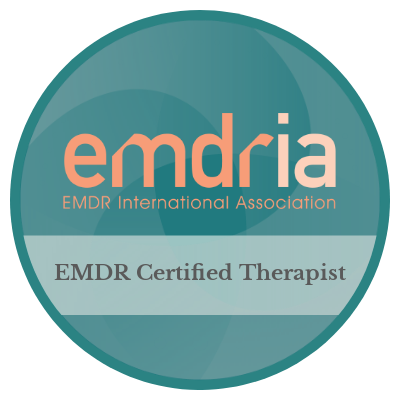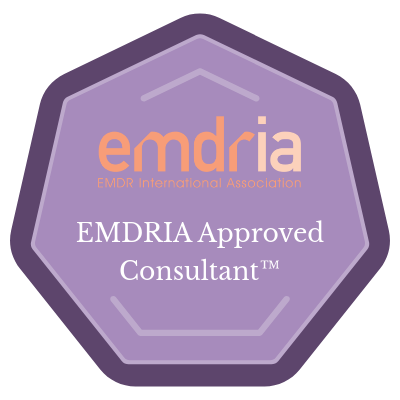EMDR Therapy
Consultation for Professionals
What is EMDR?
EMDR (Eye Movement Desensitization and Reprocessing) is an eight-stage psychotherapy practice for processing trauma. Our brains heal naturally from injury, just like other parts of the body. Distressing events can get stuck in our nervous system, and we may need support to metabolize the memory, and activate the natural healing process.
Stuck trauma can feel like one is reliving the past, and needs to remain on guard constantly. Others might be overwhelmed by negative beliefs about themselves related to past experiences, thinking “I know it wasn't my fault, but I still feel like it's my fault.” In my work as an EMDR therapist, I have witnessed people's ability to shift their relationship to trauma, change beliefs about themselves, and move out of a fight/flight/freeze response.
EMDR can be effectively offered through in person and telehealth services.
What does it mean to be EMDR Certified?

All therapists offering EMDR treatment must complete at least fifty hours of basic training, comprised of lectures, clinical sessions, and consultation.
To receive EMDR Certification, I participated in additional EMDR training: twenty hours of clinical consultation, and completed more than fifty EMDR sessions with more than twenty-five unique clients.
What does it mean to be an Approved Consultant?

To become an EMDRIA Approved Consultant, I conducted over 300 clinical sessions using EMDR, received 20 hours of consultation-of-consultation and completed more advanced training in EMDR. As an Approved Consultant, I support therapists who are seeking to be trained or certified in EMDR.